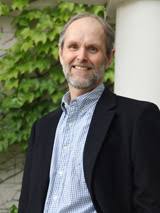Dear colleagues,
The creation of a satellite campus in Milton was always a controversial topic among faculty, and I know many of you will welcome the provincial government’s announcement that it will not be funded. I don’t want to comment on whether the Milton campus should, or should not, be opened. Rather, I’d like us to reflect on what the decision tells us about the new government and its approach to post-secondary education.
I believe the decision tells us several alarming things. First, all three cancelled expansion projects are in Conservative ridings and all had strong local support. Second, whether you agree or not, conventional wisdom holds that the west-of-Toronto market is “under-serviced” by post-secondary institutions and that a demand exists. Third, the cuts were announced with minimal forewarning to the universities and the funding was eliminated totally, not incrementally. Fourth, the government declared itself open to considering ways of allowing the satellite campuses to be built without government funding, should the universities come up with what it calls “a business case” for education. Finally, and ominously, the announcement did not make clear if the province would expand the corridor of funding to the universities (essentially allowing them to increase their allocation of government-subsidized students), even if such a “business case” was made.
We need to recognize that significant cuts to post-secondary funding are almost certainly coming. How deep those cuts are going to be is a guess at the moment, but those who are wiser than I predict that they will be in double digits. The satellite campus decision may be a predictor of how those cuts are going to be announced and implemented. If the Ford government sticks to its current playbook, the cuts will be announced suddenly and with little consultation. They will not take into account student or post-secondary needs. Although they may be targeted (by shifting money from enrolment to selected areas of education and training), the evidence of the past few days shows that the government favors dramatic, simple and comprehensive actions. Decisions are not being driven by what is best for education, but rather in the interest of reducing the deficit. Being in a conservative riding is no protection; in fact, the satellite campus announcement may be used to prove that the government is not playing at politics. Finally, if the “business” model of education is one in which there is no funding, then there is a strong probability that an Ontario “open again for business” will be one in which fees are further deregulated. The price of education in this model is passed on to the students and the universities will be expected to reduce their costs to make learning affordable. If this happens, then having a satellite campus that is draining, rather than making, money will not be an asset and it will not win us the government’s kudos.
Wilfrid Laurier University has already taken steps to make itself more sensitive to market forces (in terms of student demand) through its new budget model. A provincial shift to higher tuition fees will drive that process forward, exacerbating the gap between winners and losers on campus. Cuts to post-secondary education will not be a victimless crime.
I know this is a gloomy forecast. So what can we do? Your association is now working as part of the federation of university faculty unions and with other post-secondary organizations on a strategy for fighting prospective cuts. We have taken steps to coordinate a response to the satellite-campus announcement with the Faculty Associations at York and Ryerson. We will also be bringing our concerns over post-secondary education to MPPs at Queen’s Park in mid-November. What you can do, as members, is talk to your neighbors and friends in the community, talk to your students, and talk to each other. Get your heads and hearts into a fighting space and be prepared to shout, march, perform, rally, pass out leaflets, post and tweet your support for post-secondary education. We must grow strong and together while we wait for winter.
Sincerely,
David
